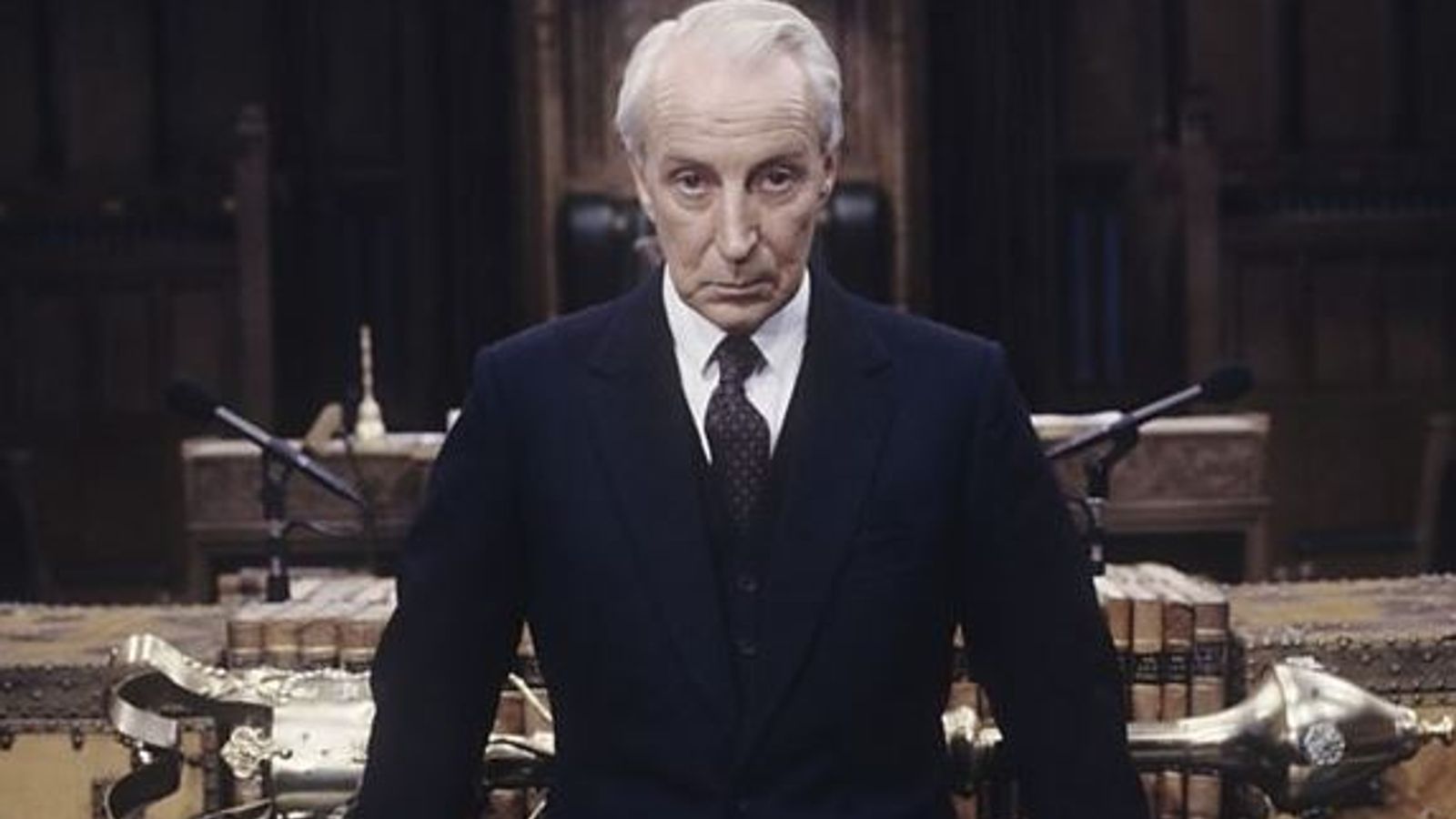Party whips in the House of Commons have always revelled in their notoriety and enjoyed being glamorised on stage and screen.
James Graham’s play This House, about the rivalry, double dealing and dirty tricks of the government and opposition whips’ offices during the Labour government of the 1970s, was a huge West End hit.
And who can forget author Michael Dobbs’ villainous chief whip Frances Urquhart, who made House of Cards a smash hit on TV with his catchphrase “You might think that. I couldn’t possibly comment.”
But is the real thing very different? Not really.
This House was based on true events in the ’70s when votes were on a knife-edge and the battles were so intense that sick MPs were wheeled in to vote on hospital trolleys.
And the central character was Walter Harrison, Labour’s deputy chief whip, a legendary figure at Westminster with a reputation for employing dodgy deals and rat-like cunning as well as bruising confrontations.
The dark arts continued into the 1990s.
Downing Street parties: ‘No evidence’ Tory MPs are being intimidated and blackmailed, says Boris Johnson
Downing Street parties: Growing Tory civil war as MPs wait for Sue Gray’s partygate report to determine Boris Johnson’s future
Boris Johnson latest news live: Number 10 ‘worried’ Sue Gray has found damning evidence and PM won’t be cleared
In his new memoir, former Tory chief whip Andrew Mitchell – whose ministerial career was ended by the “Plebgate” controversy – has a chapter about the darker arts deployed by whips to bribe and bully MPs.
“A whip is not moral or immoral but amoral,” he writes about his time as a whip in John Major’s government in the 1990s, which included the ferocious parliamentary battles over the Maastricht Bill.
“If the government decides to proceed with the slaughter of the first-borns bill, it is the whips’ job to secure the necessary votes by explaining that there are too many first borns around, fettering the chances of the second- and third-born children.
“So the public good is clearly served by their removal.”
Mr Mitchell recalls how sometimes the intimidation of backbenchers took physical form. He says the burliest of Major’s whips was capable of lifting a potential rebel off his feet by his tie and lapels.
But more often, the whips got their way using the promise of promotion or the lure of an honour, Mr Mitchell claims.
The burly whip Mr Mitchell refers to was David Lightbown, a giant of a man who had been a regimental sergeant major and who was known as “The Terminator”.
Another enforcer in John Major’s whips office of the 1990s used more duplicitous methods, claiming he had a “black book” full of stories about the sexual shenanigans of MPs – and indeed political journalists!
More recently, Gavin Williamson, who was Theresa May’s chief whip, used to enjoy and revel in the publicity about a tarantula he kept in a glass box on his desk.
The spider was called Cronus, after a Greek god who ate his own children. The Westminster folklore was that it served as a warning to errant MPs who stepped out of line.
Not all Tory chief whips have been bullies of Machiavellian figures, however.
MPs claimed Sir George Young – a cyclist known as “the bicycling baronet” – used to play Classic FM in his office when he gave troublesome backbenchers a very polite dressing down.
For many years, whips in both the Labour and Conservative parties were exclusively men.
This House features the young Ann Taylor as a junior whip.
Years later, in Tony Blair’s first term, she became the first woman to serve as government chief whip. Jacqui Smith was later chief whip under Mr Blair too and Rosie Winterton, now a deputy speaker, was Ed Miliband’s chief whip.
So despite what William Wragg claims, the macho culture in whips’ offices is not what it was, though the current chief whip, Mark Spencer, a burly, ruddy-faced farmer from Nottinghamshire, has a physique that almost matches that of David Lightbown.
Don’t dare tell any whips that they’re softies, though.
They enjoy the mystique, the secrecy and – of course – the power they enjoy.
And Mr Spencer has been blamed – somewhat unfairly – for some of the blunders of the Boris Johnson premiership, such as the 100+ COVID rebellion last month and the Owen Paterson fiasco.
Now then, how would the real-life Walter Harrison or the fictional Frances Urquhart have dealt with the challenge of protecting Boris Johnson from the “partygate” scandal and the “pork pie plot” aimed at ending his premiership?






















